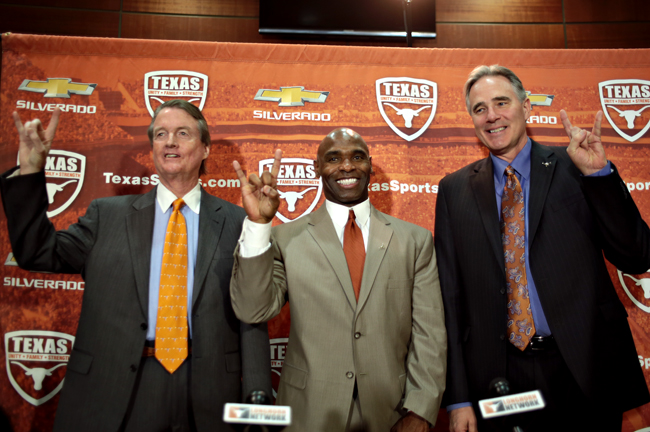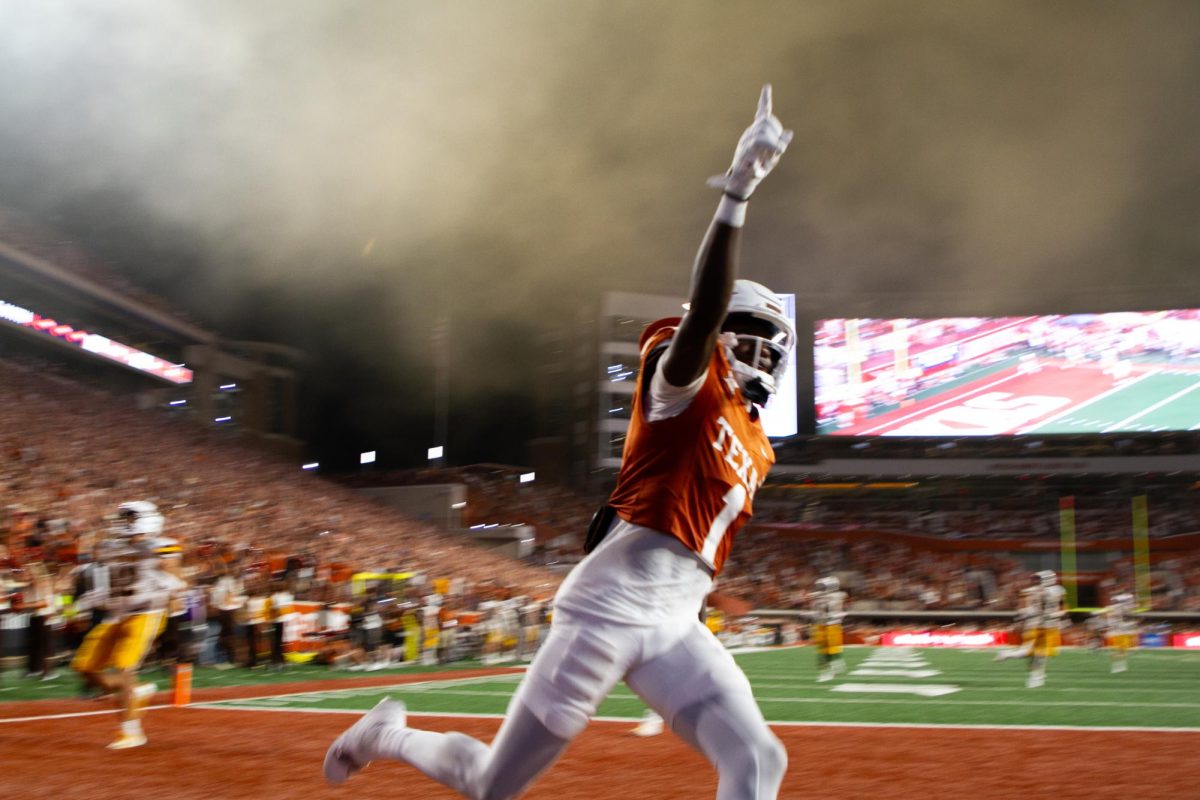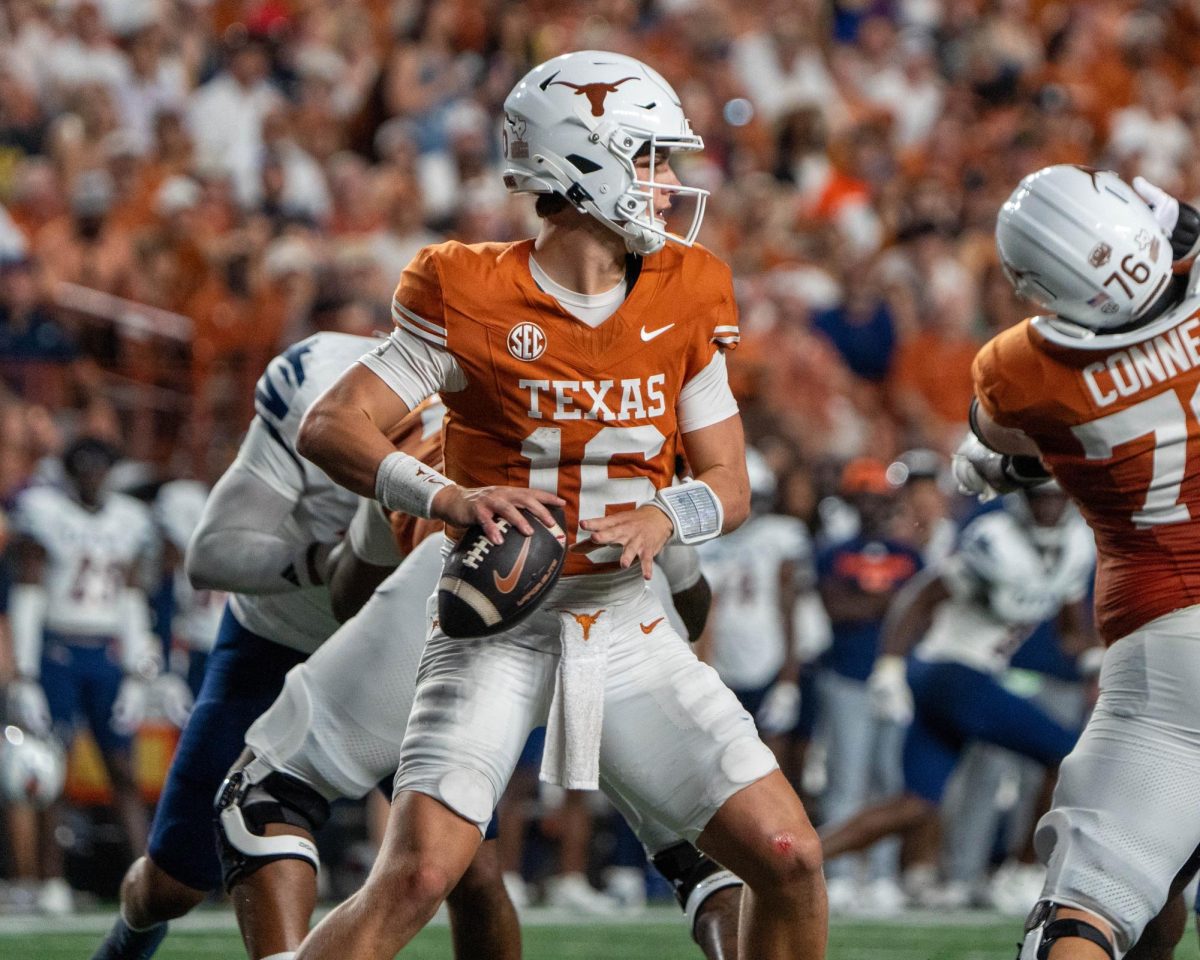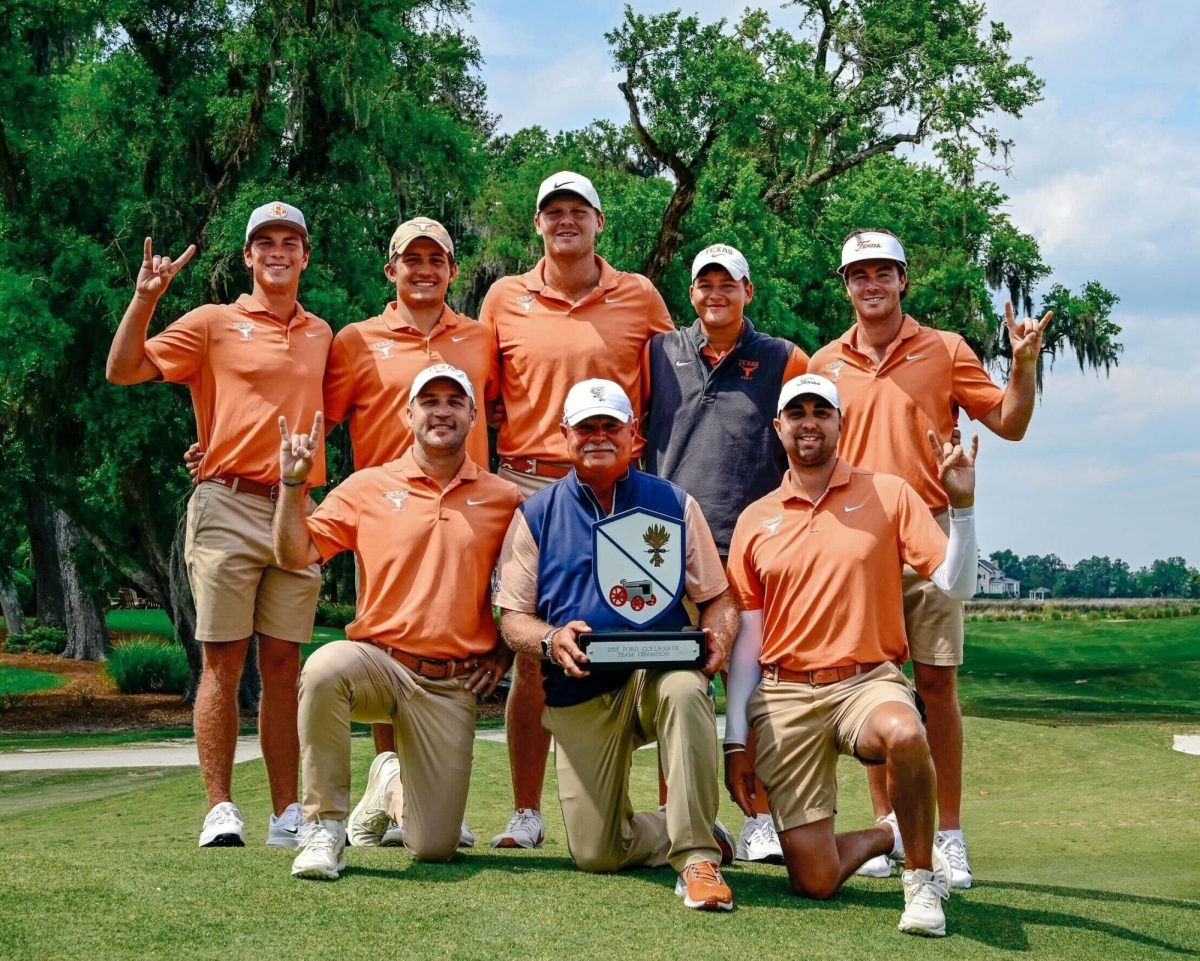Charlie Strong became the 29th head coach in Texas football history on Jan. 5, replacing Mack Brown after 16 seasons.
It wasn’t a splashy hire. Instead, Strong’s resume is based on his 23-3 record at Louisville in the last two seasons, his defensive background and his expected ability to revitalize the program. When he arrived with the Cardinals four years ago, they had a .416 winning percentage in the previous three seasons. When Strong left, that number had ballooned to .712 over the next four.
“He’s the right person to represent our university on the field, on the campus, in the community, in the living rooms of potential recruits,” President William Powers Jr. said at Strong’s Jan. 6 press conference. “He’s the right person to carry on the winning tradition that we have here — winning with integrity that was cultivated by Darrell Royal, DeLoss Dodds, Mack Brown.”
Strong preached toughness and championships in his introductory press conference. He smiled and joked, but made it clear the culture in Austin would be altered.
“It’s time to put the program back on the national stage,” Strong said. “The mentality is always going to be physical and mental toughness. You have to build your program on toughness. That’s where all the successful programs, that’s what they do.”
Strong won his initial splash with the Texas fan base. He came off as engaging, yet tough, striking just the right balance of leaving intact Brown’s legacy of integrity mixed with a drastic change in the mental fortitude of the program.
But it will be an uphill battle for Strong in Austin.
With variation comes resistance, and the first tremors of that came quickly from Texas booster Red McCombs. The billionaire and namesake of the University’s regarded business school said he and many other boosters were left out of the hiring process, and were upset because they had a lot of football knowledge to add.
“I think the whole thing is a bit sideways,” McCombs said of the selection process to ESPN 1250 San Antonio. “I don’t have any doubt that Charlie is a fine coach. I think he would make a great position coach, maybe a coordinator.”
McCombs later apologized for his comments, but his initial reaction is just a part of the murky power system at Texas that Strong must navigate. In his 16 seasons, Brown cultivated a close circle of powerful friends that significantly influenced the direction of the program. Strong isn’t likely to share the same CEO-like attitude toward football, so he must win to keep the Longhorns’ wide alumni base satisfied.
The resources are there, and Strong has a history of success, from his time as a defensive coordinator at Florida to winning BCS bowl games at Louisville. The foundation is laid at Texas; he just needs to juggle Texas’ traditional methods with his new boots-to-the-ground approach.
“I can just add another brick to it because the bricks are there,” Strong said. “I just need to put another brick on top of it.”





















